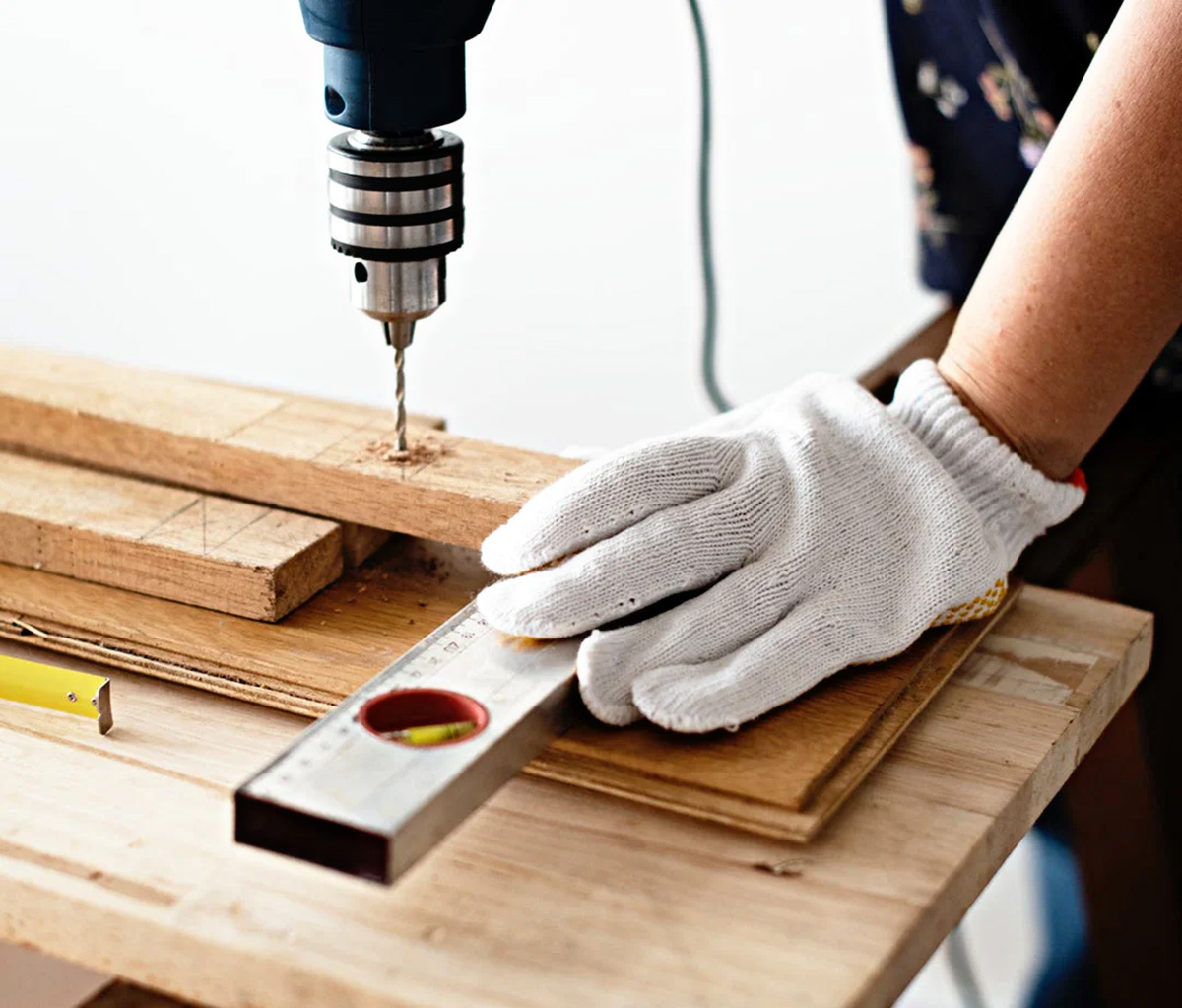Home>Renovation & DIY>Home Renovation Guides>What Is Covered By Tennessee Home Improvement License


Home Renovation Guides
What Is Covered By Tennessee Home Improvement License
Modified: August 28, 2024
Learn what is covered by the Tennessee home improvement license with our comprehensive home renovation guides. Get expert advice and tips for your home improvement projects.
(Many of the links in this article redirect to a specific reviewed product. Your purchase of these products through affiliate links helps to generate commission for Storables.com, at no extra cost. Learn more)
**
Introduction
**
So, you've decided to take on a home improvement project in Tennessee. Whether you're revamping your kitchen, adding a new deck, or renovating your bathroom, it's important to understand the legal requirements surrounding home improvement projects in the state. One crucial aspect of this process is obtaining the necessary licenses and permits. These regulations are in place to protect both homeowners and contractors, ensuring that work is carried out safely and to the highest standards.
In Tennessee, the Home Improvement License is a vital component for contractors looking to undertake various types of projects. This license not only serves as a testament to a contractor's expertise and professionalism but also signifies compliance with state laws and regulations. Understanding the scope of projects covered by this license, the application process, and the associated insurance requirements is essential for anyone involved in the home renovation industry in Tennessee.
In this comprehensive guide, we will delve into the specifics of the Tennessee Home Improvement License, providing a detailed overview of its requirements, the types of projects it covers, the licensing process, insurance obligations, and the potential consequences of undertaking unlicensed work. By the end of this article, you will have a thorough understanding of what is covered by the Tennessee Home Improvement License and why it is a crucial aspect of any home improvement project in the state. Let's embark on this journey to uncover the intricacies of home improvement licensing in Tennessee.
Key Takeaways:
- Tennessee Home Improvement License ensures contractors are qualified, trustworthy, and compliant with state laws. It covers various projects, promoting safety and quality in home renovations.
- Unlicensed work in Tennessee can lead to legal and financial consequences for contractors. Obtaining and maintaining a Home Improvement License is crucial for professionalism and consumer protection.
Tennessee Home Improvement License Requirements
Obtaining a Home Improvement License in Tennessee is a fundamental step for contractors seeking to undertake a wide range of projects. The license is regulated by the Tennessee Board for Licensing Contractors, which ensures that contractors meet certain criteria before being authorized to carry out home improvement work. Here are the key requirements for obtaining a Tennessee Home Improvement License:
- Experience and Qualifications: To be eligible for a Home Improvement License, contractors must demonstrate a combination of practical experience and relevant qualifications. This typically includes a minimum number of years working in the construction or home improvement industry, along with a sound understanding of building codes, safety regulations, and industry best practices.
- Financial Responsibility: Contractors applying for the license must exhibit financial stability and responsibility. This may involve providing evidence of a surety bond or meeting specific financial criteria to ensure that they are capable of fulfilling their contractual obligations and responsibilities.
- Criminal Background Check: Applicants are required to undergo a criminal background check as part of the licensing process. This is to ascertain that individuals seeking the license have a clean record and do not pose a risk to the safety and well-being of homeowners.
- Examination: In some cases, contractors may be required to pass a licensing examination to demonstrate their knowledge and understanding of home improvement practices, building codes, and relevant regulations in Tennessee.
Meeting these requirements is essential for contractors aiming to obtain a Tennessee Home Improvement License. By fulfilling these criteria, contractors can demonstrate their competence, trustworthiness, and commitment to upholding the highest standards in the home improvement industry.
Types of Projects Covered
The Tennessee Home Improvement License encompasses a broad spectrum of projects, allowing licensed contractors to undertake various types of home improvement work. Some of the key projects covered by this license include:
- Kitchen Renovations: Contractors with a Tennessee Home Improvement License can undertake comprehensive kitchen renovations, including cabinet installations, countertop replacements, flooring upgrades, and electrical or plumbing modifications.
- Bathroom Remodeling: The license extends to encompass bathroom remodeling projects, encompassing tasks such as tiling, fixture replacements, shower or bathtub installations, and ventilation system upgrades.
- Deck and Patio Construction: Contractors are authorized to construct and renovate outdoor living spaces, including the building of decks, patios, and outdoor entertainment areas, providing homeowners with extended living and entertainment spaces.
- Interior and Exterior Painting: The license covers painting projects both inside and outside the home, allowing contractors to refresh and enhance the aesthetic appeal of residential properties.
- Flooring Installation: Licensed contractors can undertake the installation of various types of flooring, such as hardwood, laminate, tile, and carpet, catering to homeowners’ diverse preferences and needs.
- Roofing and Siding Replacement: The license extends to cover roofing and siding replacement, enabling contractors to address crucial components of a home’s exterior structure.
These are just a few examples of the projects covered by the Tennessee Home Improvement License. The breadth of coverage underscores the importance of obtaining the license for contractors looking to engage in diverse home improvement endeavors, providing homeowners with the assurance that their projects are in capable and qualified hands.
Types of Projects Not Covered
While the Tennessee Home Improvement License encompasses a wide array of home improvement projects, there are certain types of work that fall outside its scope. It’s crucial for contractors and homeowners to be aware of the projects that are not covered by this license to ensure compliance with state regulations and to avoid potential legal complications. Some examples of projects not covered by the Tennessee Home Improvement License include:
- Structural Alterations: Projects involving significant structural modifications to a home, such as the removal or addition of load-bearing walls, major foundation work, or extensive structural renovations, typically require a separate license or permit, as they involve critical aspects of a building’s integrity and safety.
- Electrical and Plumbing Installations: While minor electrical and plumbing work may be covered by the home improvement license, projects that involve extensive electrical rewiring, panel upgrades, or significant plumbing installations often necessitate specialized licenses or permits due to the technical expertise and regulatory considerations involved.
- HVAC System Installations: The installation, repair, or replacement of heating, ventilation, and air conditioning (HVAC) systems typically requires specialized licensing and certification, as it involves complex mechanical systems and adherence to specific industry standards and regulations.
- New Construction: Building new residential structures or additions to existing homes, such as constructing a new house, adding a room, or building a detached garage, falls outside the scope of the home improvement license and requires separate licensing and permitting.
- Plumbing and Electrical Inspections: While minor repairs and maintenance may be covered, comprehensive inspections of electrical and plumbing systems often necessitate specialized certification and licensing due to the technical expertise required to assess and certify the safety and compliance of these essential home systems.
Understanding the limitations of the Tennessee Home Improvement License is crucial for both contractors and homeowners to ensure that the appropriate permits and licenses are obtained for specific types of work. By adhering to these regulations, individuals can uphold the integrity of their projects and mitigate potential legal and safety risks.
Before hiring a contractor for home improvement in Tennessee, make sure they are licensed for the specific work you need. The Tennessee Board for Licensing Contractors can provide information on what is covered by a home improvement license.
Licensing Process
The process of obtaining a Tennessee Home Improvement License involves several key steps, each designed to assess a contractor’s qualifications, experience, and adherence to state regulations. Understanding the licensing process is essential for contractors seeking to engage in home improvement projects within the state. Here’s an overview of the typical licensing process:
- Application Submission: Contractors must submit a comprehensive application to the Tennessee Board for Licensing Contractors, providing details of their professional experience, qualifications, and financial stability. This initial step initiates the evaluation process for the Home Improvement License.
- Background Check and Screening: As part of the application review, contractors are subject to a thorough background check to verify their criminal history and ensure compliance with state regulations. This is a critical component of the licensing process to prioritize consumer safety and trust.
- Examination (if required): Depending on the specific requirements and the nature of the contractor’s experience, an examination may be mandated to assess the individual’s knowledge of home improvement practices, building codes, and relevant regulations in Tennessee. This examination serves to uphold industry standards and ensure a high level of expertise among licensed contractors.
- Approval and Issuance: Upon successful completion of the application review, background screening, and any necessary examinations, the Tennessee Board for Licensing Contractors grants approval for the Home Improvement License, allowing the contractor to engage in authorized home improvement projects within the state.
It’s important for contractors to adhere to the established procedures and requirements throughout the licensing process to demonstrate their commitment to professionalism, safety, and compliance with state regulations. By obtaining a Tennessee Home Improvement License through this structured process, contractors can instill confidence in homeowners and uphold the standards of the home improvement industry.
Insurance Requirements
As part of the regulatory framework governing home improvement projects in Tennessee, contractors holding a Home Improvement License are subject to specific insurance requirements. These insurance provisions are designed to protect both contractors and homeowners, ensuring financial security and mitigating potential liabilities associated with home improvement work. Here are the key insurance requirements for contractors holding a Tennessee Home Improvement License:
- General Liability Insurance: Contractors are typically required to carry general liability insurance, which provides coverage for property damage, bodily injury, and personal injury resulting from their work. This insurance safeguards homeowners and third parties from potential financial losses and legal claims arising from accidents or damages related to the contractor’s activities.
- Worker’s Compensation Insurance: In many cases, contractors are mandated to maintain worker’s compensation insurance to provide benefits to employees in the event of work-related injuries or illnesses. This insurance serves to protect workers and employers by offering financial support and medical coverage for workplace injuries or occupational hazards.
- Bonding Requirements: Depending on the specific licensing and bonding regulations, contractors may need to obtain surety bonds to guarantee their performance and fulfill contractual obligations. Surety bonds provide a form of financial assurance to homeowners, ensuring that the contractor adheres to the terms of the contract and meets their obligations.
- Insurance Documentation: Contractors must furnish proof of insurance coverage and bonding as part of the licensing and permitting process. This documentation serves as a demonstration of the contractor’s compliance with insurance requirements and provides assurance to homeowners regarding the protection and security measures in place for their projects.
By adhering to these insurance requirements, contractors holding a Tennessee Home Improvement License can instill confidence in homeowners, demonstrating their commitment to responsible and professional conduct. These insurance provisions play a crucial role in safeguarding the interests of all parties involved in home improvement projects, fostering a secure and reliable environment for construction and renovation work in Tennessee.
Penalties for Unlicensed Work
Engaging in home improvement projects without the requisite license in Tennessee can lead to significant legal and financial repercussions for contractors. The state imposes strict penalties for unlicensed work to uphold the integrity of the home improvement industry and protect the interests of homeowners. It is crucial for contractors to understand the potential consequences of operating without a valid Home Improvement License. Here are the penalties associated with unlicensed work in Tennessee:
- Legal Sanctions: Contractors found to be performing unlicensed home improvement work may face legal action, including fines, citations, and potential legal disputes with homeowners. These legal sanctions can result in financial liabilities and damage to the contractor’s professional reputation.
- Voided Contracts: In many cases, contracts for unlicensed home improvement work are deemed void or unenforceable under Tennessee law. This means that contractors may be unable to pursue legal remedies or compensation for their services, leading to financial losses and contractual disputes.
- Consumer Complaints: Unlicensed work can trigger consumer complaints and grievances, damaging the contractor’s credibility and trustworthiness in the eyes of potential clients. Negative feedback and complaints can have long-term repercussions on a contractor’s business and future opportunities.
- Ineligibility for Permits and Licenses: Contractors involved in unlicensed work may face restrictions or disqualifications from obtaining future permits and licenses for home improvement projects. This can impede the contractor’s ability to conduct legitimate business and pursue professional opportunities in the industry.
- Civil Penalties and Restitution: Contractors may be subject to civil penalties and restitution orders, requiring them to compensate homeowners for damages, substandard work, or contractual breaches resulting from unlicensed projects. These financial obligations can have far-reaching consequences for the contractor’s financial stability and professional standing.
Understanding the severity of the penalties for unlicensed work underscores the importance of compliance with Tennessee’s home improvement licensing regulations. By obtaining and maintaining a valid Home Improvement License, contractors can uphold the legal and ethical standards of the industry, protect their businesses, and provide homeowners with the assurance of professional and accountable services.
Conclusion
As we conclude our exploration of the Tennessee Home Improvement License, it becomes evident that this regulatory framework plays a pivotal role in shaping the landscape of home improvement projects within the state. From the stringent licensing requirements to the comprehensive insurance provisions and the potential consequences of unlicensed work, the Tennessee Home Improvement License serves as a cornerstone for upholding professionalism, safety, and quality in the construction and renovation industry.
For contractors, obtaining a Home Improvement License signifies a commitment to excellence, expertise, and compliance with state regulations. It demonstrates a dedication to meeting the highest standards of craftsmanship and ethical conduct, instilling confidence in homeowners and fostering trust within the community. The licensing process, while rigorous, serves to elevate the caliber of contractors operating in Tennessee, ensuring that only qualified and reputable professionals are entrusted with home improvement projects.
Homeowners, on the other hand, benefit from the assurance that licensed contractors possess the requisite skills, experience, and financial stability to deliver exceptional results while prioritizing safety and regulatory adherence. The coverage of a diverse range of projects under the license provides homeowners with access to a pool of qualified professionals capable of fulfilling their unique renovation and construction needs with precision and expertise.
Moreover, the penalties for unlicensed work underscore the imperative of compliance with the licensing requirements, emphasizing the potential risks and liabilities associated with operating without a valid Home Improvement License. By adhering to these regulatory mandates, contractors can safeguard their businesses, protect consumer interests, and contribute to the overall integrity of the home improvement industry in Tennessee.
In essence, the Tennessee Home Improvement License serves as a cornerstone for professionalism, consumer protection, and industry excellence, shaping a landscape where contractors and homeowners can engage in home improvement projects with confidence, trust, and a shared commitment to quality and compliance.
Frequently Asked Questions about What Is Covered By Tennessee Home Improvement License
Was this page helpful?
At Storables.com, we guarantee accurate and reliable information. Our content, validated by Expert Board Contributors, is crafted following stringent Editorial Policies. We're committed to providing you with well-researched, expert-backed insights for all your informational needs.















0 thoughts on “What Is Covered By Tennessee Home Improvement License”